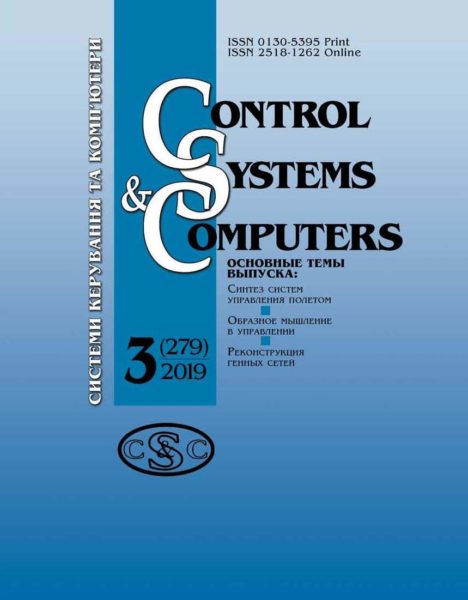Control Systems and Computers, N5-6, 2021, Article 8
https://doi.org/10.15407/csc.2021.05-06.072
Control Systems and Computers, 2021, Issue 5-6 (295-296), pp. 72-87.
UDC 378.018.43:811
Bodyk Ostap P. Ph.D. in Philology, Associate Professor, Associate Professor of English Philology Department, Mariupol State University, 129a, Budivelnykiv Ave., Mariupol, 87500, Ukraine, https://orcid.org/0000-0003-4642-8371, ostapb74@gmail.com
MOODLE PLATFORM AS A TOOL FOR IMPLEMENTING DISTANCE LEARNING IN THE PROCESS OF TRAINING FUTURE TEACHERS OF FOREIGN LANGUAGES
Introduction. The training of future foreign language teachers should focus on current advances in the IT field, in particular on the use of elements of distance learning in mastering professional and general competencies. One of the common learning management systems that provide distance education is the Moodle system –Learning Management System(LSM), courses, virtual learning environment, or just a learning platform that provides educational subjects and administrators with a large set of tools for computerized teaching and learning.
Purpose. The purpose of the paper is to analyze the features and advantages of distance learning in the information and educational environment of higher education, the structure and principles of working with distance courses in the Moodle system during the training of future teachers of foreign languages, which is used at Mariupol State University, and also to determine the advantages of the Moodle learning management system in the educational process.
Results. We believe that the Moodle system, which was developed in the logic of the “pedagogy of social constructionism” (P. Berger and T. Lukman), is able to significantly increase the level of education if the work of students is properly organized in it: it will create a solid base and allow to prepare a specialist who is well trained and possesses competencies at a high level.
On the example of our distance course “Methodological workshop” for students of OS Master in specialty 014 Secondary education “Language and Literature (English)”, which organically combines the theoretical principles and practice of teaching English, as well as in-depth study of the courses“Methods of teaching basic foreign language in secondary education”and“Modern technologies for teaching a basic foreign language (English) in high school”, which have practical importance in the professional development of future specialists, we analyzed the productivity of work organization and the effectiveness of students learning in Moodle, using the principle of “constructive coordination” (John Biggs). In its construction, we approached the planning of the entire process of studying the discipline as a set of interconnected types of educational activities of students. The principle of “first content, then technology” works here. This course contains three components that are consistent with each other: 1) expected learning outcomes, consistent with the objectives of the educational program and programmatic learning outcomes; 2) assessment, which verifies certain learning outcomes; 3) all types of activities during the course that are aimed at achieving learning outcomes.
Conclusion. According to online surveys and our own experience, the use of distance learning courses created in the Moodle system in the educational process of students allows them to better study a specific academic discipline, helps to improve students’ achievement; complements enriches and makes the learning process convenient for both students and teachers.
Download full text! (In Ukrainian)
Keywords: learning management systems, distance learning, higher education institutions, distance learning course, tools and means of the Moodle system, future foreign language teachers, organization of the teacher’s work, use of distance technologies, educational content.
- Rekomendatsiyi shchodo vprovadzhennya zmishanoho navchannya u zakladakh fakhovoyi peredvyshchoyi ta vyshchoyi osvity. [online] Available at: <https://mon.gov.ua/ua/osvita/visha-osvita/rekomendacij-shodo-vprovadzhennya-zmishanogo-navchannya-u-zakladah-fahovoyi-peredvishoyi-ta-vishoyi-osviti> [Last accessed: 05.2021]. (In Ukrainian).
- Romanovska O., Romanovska Yu. Yu., Romanovskyi O. O., 2020. Dosvid vyshchoyi osvity Spoluchenykh Shtativ Ameryky XX – XXI stolit, Knyha 4, Osoblyvosti akademichnoho (universytetskoho) pidpryyemnytstva u USA druhoyi polovyny XX – pochatku XXI stolit, Textbook, Vyd-vo NPU im. M. P. Drahomanova, Kyiv, 240 p. (In Ukrainian).
- Pro osvitu : Zakon Ukrainy vid 05.09.2017 № 2145-VIII, Vidomosti Verkhovnoi Rady (VVR), 2017, 38–39, 380. [online] Available at: <https://zakon.rada.gov.ua/laws/show/2145-19#Text> [Last accessed: 05.06.2021]. (In Ukrainian).
- Berger P., Lukman T., 1995. Sotsialnoye konstruirovaniye realnosti: Traktat po sotsiologii znaniya, Translated from English by E. Rutkevich, Academia-Tsentr, Medium, Moscow, 323 p. (In Russian).
- Shandra , 2020. “Orhanizatsiia dystantsiinoho navchannia v Moodle”, Osvita.ua. [online] Available at: <https://osvita.ua/vnz/high_school/72285/> [Last accessed: 05.06.2021]. (In Ukrainian).
- Rekomendatsiyi shchodo vprovadzhennya zmishanoho navchannya u zakladakh fakhovoyi peredvyshchoyi ta vyshchoyi osvity, Ministry of Education and Science of Ukraine. [online] Available at: <https://mon.gov.ua/ua/osvita/visha-osvita/rekomendacij-shodo-vprovadzhennya-zmishanogo-navchannya-u-zakladah-fahovoyi-peredvishoyi-ta-vishoyi-osviti> [Last accessed: 05.2021]. (In Ukrainian).
- Biggs J. “Aligning Teaching for Constructive Learning”. [online] Available at: <https://www.heacademy.ac.uk/sites/default/files/resources/id477_aligning_teaching_for_constructing_learning.pdf> [Last accessed: 05.2021].
- Borshcheva O. V., Navolochnaya Yu. V., 2019. “Organizatsiya raboty studentov v sisteme Moodle pri obuchenii inostrannomu yazyku v vuze”, Pedagogika i psikhologiya obrazovaniya, 1, pp. 92–97. <https://cyberleninka.ru/article/n/organizatsiya-raboty-studentov-v-sisteme-moodle-pri-obuchenii-inostrannomu-yazyku-v-vuze/viewer>. (In Russian).
- Bodyk O. P., 2020. Robocha prohrama navchalnoyi dystsypliny “Metodychnyy praktykum” dlya studentiv OPP “Mova i literatura (anhliyska)” spetsialnosti “014 Serednya osvita” (OS “Mahistr”), MDU, Mariupol, 32 p. (In Ukrainian).
- Anisimov A. M., 2009. Rabota v sisteme distantsionnogo obucheniya Moodle, Textbook, 2nd ed., KhNAGKh, Kharkov, 292 p. (In Russian).
- Nash S. S., Rice W., 2018. Moodle 3 E-Learning Course Development, 4th ed., Packt, Birmingham – Mumbai, 432 p.
- Robson Santos da Silva, 2017. Moodle 3 for Managers, Authors and Teachers: Online education on Web 2.0., 4th ed., Amazon Digital Services LLC. [online] Available at: <https://www.amazon.com/dp/B072Z3RJ6C/&tag=httpmoodlcom-20?asin=B072Z3RJ6C&revisionId=&format=4&depth=1> [Last accessed: 05.2021].
- Andreyev A. V., Andreyeva S. V., Dotsenko I. B., 2008. Praktika elektronnogo obucheniya s ispolzovaniyem Moodle, Textbook, Izd-vo TTI YuFU, Taganrog, 146 p. (In Russian).
- Myasnikova T. S., Myasnikov S. A., 2008. Sistema distantsionnogo obucheniya MOODLE, Izd-vo Sheyninoy E. V. Kharkov, 232 p. (In Russian).
- Tryus V., Herasymenko I. V., Franchuk V. M., 2012. Systema elektronnoho navchannya VNZ na bazi MOODLE, Textbook, ChDTU, Cherkasy, 220 p. (In Ukrainian).
Received 12.09.2021



